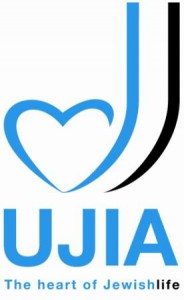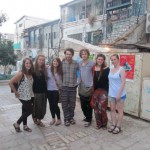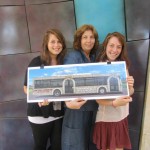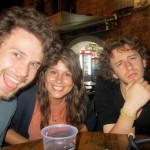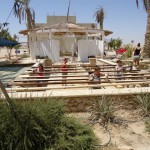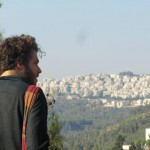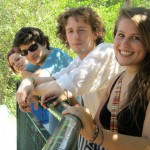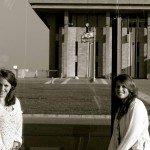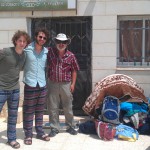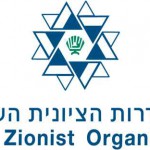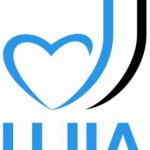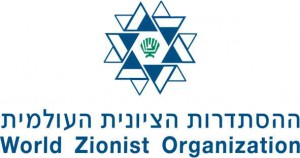Summer Options Scheme (SOS) returns after a phenomenal month in Israel
SOS is LJY-Netzer’s new internship program which sent 10 of our member to Israel for a month. In Israel the participants had two seminars as a group, one at the beginning and end, and split into pairs for a three week internship at five different NGOs. The purpose of the program was to give participants the chance to experience first hand how a Reform Zionist can live out their life in Israel, working to better the country and the lives of the people who inhabit it. The five different placements were: IRAC (Israeli Religious Action Centre) who campaign for religious quality in Israel; ARDC (African Refugee Development Centre) who work with Israel’s African refugee population; Rabbis for Human Rights who do substantial work in both Israel and the occupied territories fighting for human rights; the Karmial Kaytana, a summer camp in Karmiel; Ayalim, a student run organization which works to develop deprived areas.
Below is a write up from Joe Cohen, one of the participants, who worked at Rabbis for Human Rights:
Over the summer, I was fortunate enough to be a part of one of the most unique educational programmes that I have seen LJY-Netzer offer.
A small group of us were given one month long internships with a choice of 5 NGO’s in Israel. The free programme included food, flights, travel and accommodation. The organisations we worked for are all involved in some way with the task of making Israel a better place.
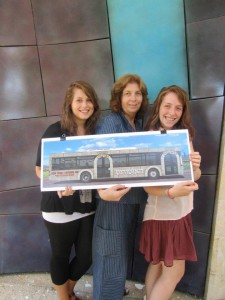 The group I was with were all students from 18 to 22 and treated as such. We were given the freedom to self direct as much as possible and so we opened a dialogue with our potential line managers in the months leading up to the trip, starting by sending a CV and covering letter.
The group I was with were all students from 18 to 22 and treated as such. We were given the freedom to self direct as much as possible and so we opened a dialogue with our potential line managers in the months leading up to the trip, starting by sending a CV and covering letter.
Once we arrived in Israel, we took part in an opening seminar in which we discussed professional skills we would need for our placements, and began to explore some of the more challenging questions that would arise naturally working in the 3rd sector in such a dynamic environment.
I was placed with Rabbis For Human Rights, along with another participant. They are, as the name suggests, an NGO working to prevent abuses of human rights occurring in Israel. Initially, it was unclear what we would be doing and we found that a typical work day there would be non-existent. However, we were encouraged by both LJY-Netzer and RHR to explore the office and decide what the best arrangement would be.
Due to the reactionary nature of the organisation, there was not always specific work for us to do, and so we filled those periods with the planning and execution of a project in which we distributed donated clothes, blankets and bags to people who needed them. RHR facilitated us incredibly well, giving us office space and offering to write letters and visit any parties involved with our project.
We were also given the rare opportunity to accompany people from RHR on visits into the occupied territories when they were necessary, during which our line manager answered any questions we had and raised many that we had not considered. These trips gave us some opportunity to witness the situation in the occupied territories first hand, which was profoundly unforgettable.
I should add here that we were always well advised and accompanied whenever we went into the field
We were offered a lot of support from both LJY-Netzer in the UK and from Netzer who’s office is in the building that we were staying in and found ourselves in contact with some incredibly interesting people as a result of the work we were doing. The variety of placements gave us the chance to explore our skills in the areas that most suited us. One participant who is currently studying to become a teacher was given work in the children’s department of refugee centre in Tel Aviv where she was in charge of keeping the kids active and occupied during the day. Another who is studying human geography found himself creating information packs to be used as resources within the same refugee centre. This was a result of both the management of all the organisations involved and the participants determination to get the most out of the programme.
It is true that there were difficulties involved and it was challenging for everyone at times, but the level of freedom we were awarded, from managing our budget to our involvement with our placements, helped encourage us to explore our positions and make sure we were where we wanted to be.
We ended the programme with another seminar where we discussed our placements and how the programme had been for us. We had extensive feedback which sought to look at what we could take back to the UK and to LJY-Netzer. After such an intense month it was useful to have time to look over the experience,
I really feel that this programme is a huge investment in us as participants. Having been part of LJY-Netzer for 13 years, it was amazing to see how the ideals that we discussed on events can be actualised, and to be trusted to represent the organisation on a professional level.
This pioneering programme was made possible with the help of UJIA, the World Zionist Organisation (WZO), Liberal Judaism and the North London Progressive Synagogue Trust (NLPS) 